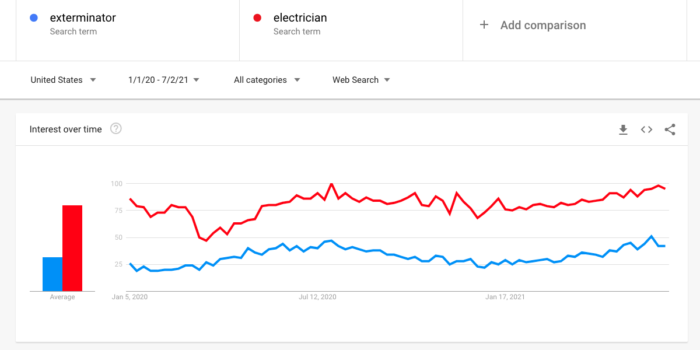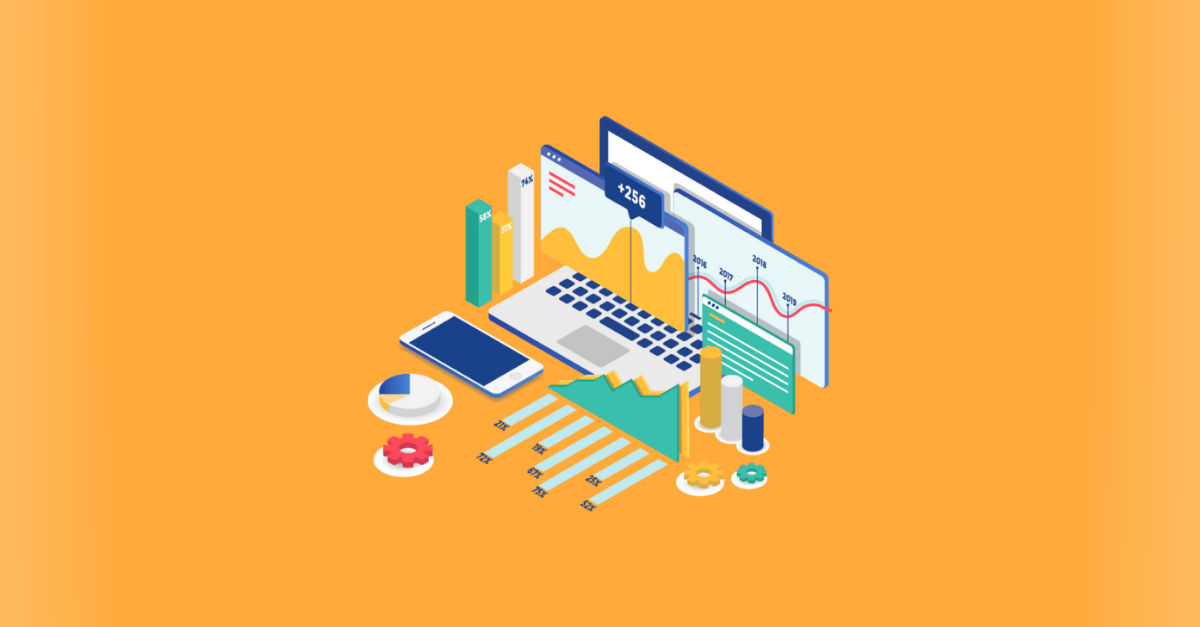The marketing world has been quite shaken with all that has occurred over the past year. There’s no doubt that Covid has significantly impacted marketing budgets and strategies. At DSG, one area where we have seen significant fallout is Pay Per Click advertising.
We had a chat with John Feddern, DSG’s resident Pay Per Click (PPC) expert, and asked him about the ways that Covid has changed PPC strategies. John offers his insights on how companies new and old alike are using PPC as we return to a more normal life. Read the interview below!
How has PPC advertising changed throughout the past year and through the pandemic?
What we saw last year was quite an anomaly. Taking a look at the campaigns that we’ve run, March through May of 2020 had significant dips in traffic and clicks. Our (DSG’s) particular clients were in industries that weren’t nearly as badly affected as, let’s say, restaurants, but we did see a dip. It really did feel like everything came to a stop.
As we came out of this, and I’m talking going from Q4 of last year (2020), we started to see traffic begin to normalize. Fast forward to today and – things are hot! The economy is booming.
There is, of course, still some unemployment and inflation out there, but the inflation is due to the fact that the economy is booming. In terms of PPC, we’re almost back to where we were in 2019 in terms of overall traffic. We have seen Cost Per Click creep up a little bit for our clients – because inflation applies to the cost of a click, too.
Which verticals were most affected by the pandemic, and are there certain verticals that are still seeing those negative effects in PPC?
No matter what industry you’re in, if you had to pull back on PPC during the pandemic, now is the time to get back in the game. One particular client of ours was hit pretty hard, being in the building materials industry. We had a couple of PPC campaigns planned that we put the kibosh on, but we’re now planning to start them back up.
We’re definitely seeing a boom in home services – and actually, home services businesses did not take the same hit that some other industries did. We’re witnessing firsthand with some of DSG’s clients that the industry has remained strong throughout the past year, and continues to grow.

We know a lot of businesses have had to keep a stricter budget after all that’s happened. Would you say that PPC ads are worth it for businesses with lower marketing budgets?
Absolutely. One of the general fallacies is that you have to be a big business to participate in PPC and be seen – to go up in the auction against the “big boys”. But this isn’t true. When Pay Per Click is done correctly, it can be very beneficial for small and medium sized businesses. We have client campaigns that are mere hundreds of dollars per month that work wonders for our clients.
How can these businesses implement PPC in a budget-friendly way?
If you have a limited budget, you want to make sure that you are concentrating on the geography and products that will give you the most profit. We’ll also need to take a look at what the cost per click will be for that particular product or service, because not every product or service is priced the same on Google.
There’s a number of factors that go into it but if you have the expertise, you can absolutely get into Google advertising and earn that top position with a small marketing budget.
What are some tips you can share to help newbies that are entering the PPC advertising world?
The biggest piece of advice that I can give to someone new is, if you don’t know what you’re doing, find somebody who does! Because, when you don’t know what you’re doing, you might be surrendering control to the search engines to run the campaign for you – and they don’t have your best interests in mind.
Google has been encouraging small businesses to utilize Smart Campaigns, which in my mind, is an ironic name, because this is not a smart way to administer a campaign. The main piece of advice is that you want to maintain as much control over your campaigns as possible, and, with a Smart Campaign, you’re leaving Google to handle the majority of your campaign decisions.
If maintaining control of your campaign requires you to outsource your advertising, then that’s what you should do. It might cost you a bit more, but it is well worth the money to do it correctly rather than attempt it yourself and not get the results that you want. It’s important to understand that paid search is NOT “set-it-and-forget-it”. If you do that, you will not have success.
The world of marketing is always shifting and changing. As we return to normal, what does the future look like for PPC advertising?
The future is strong! And I don’t expect that to change.
There are some things on the horizon that may have repercussions, such as the lawsuit filed by the EU against Google, claiming they’re a monopoly. If the lawsuit is successful and Google gets broken up, we could see some fragmentation that could cause a paradigm shift with PPC. But, there’s no reason to worry about it at the moment.
The costs for PPC advertising have been going up year over year and I think that will continue. PPC is essential. A search engine is where people go when they need or want something. It’s very bottom of the funnel and will continue to be the most voluminous lead source for many businesses.
Okay, one last question – thoughts on the Mets’ Chances in the second half? Will they make it post season?
Oh boy! I actually am pessimistic about their chances in the second half. I’m a big ol’ Mets fan and they’re in first place but I tell ya, unless they make some trades and get some people in, I’m kind of pessimistic right now. But we’ll see! When you’re a Mets fan, you get used to this stuff. It used to be that you could commiserate with Cubs fans, but then they went and won a world series a couple years ago. “LongSufferingMetsFan” is actually one word, if you didn’t know.
Well, I hope for your sake that your predictions are wrong and that they do well!
Me too!

John Feddern is a Marketing Director at DSG.
He has been in the marketing industry for 22 years.


